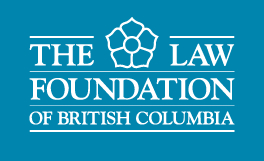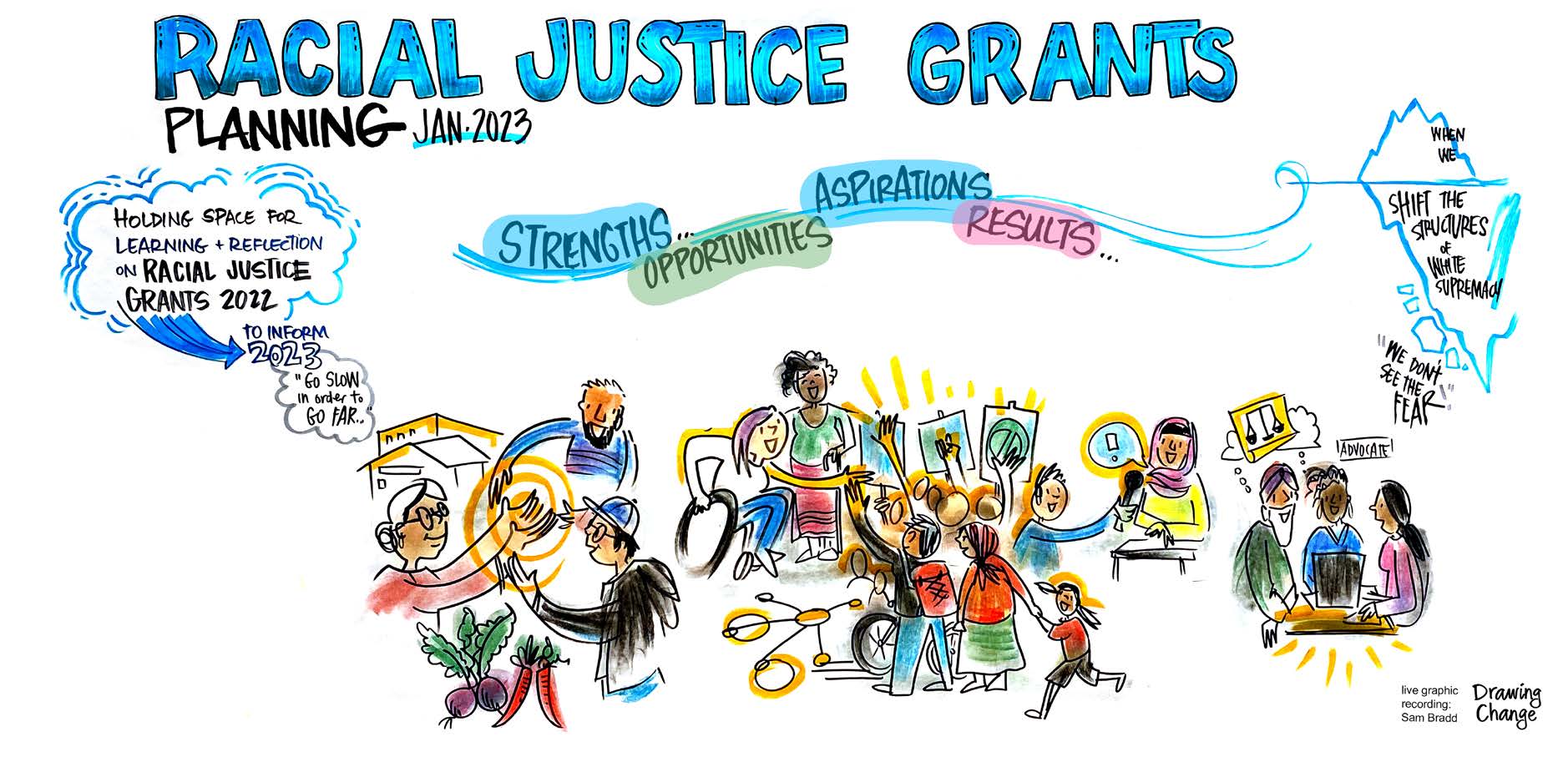The Foundation makes a significant investment to advance racial justice
Systemic racism and racial injustice impact racialized people and communities in BC in many different ways. Racialized people, including Indigenous Peoples, Black people and people of colour, experience systemic racism that affects many facets of their lives, and that is a part of many of the systems through which our communities are governed and receive services. For Indigenous and Black communities, racial injustice manifests — among other ways — as overrepresentation in the criminal justice system and in child removals. Language and cultural barriers for racialized newcomer communities make navigating the law and legal processes difficult. The inequities and biases that underpin systemic racism exist in the Canadian legal system too, and funding is required to address those inequities. The Foundation launched the Racial Justice Grants Call as part of its commitment to support the eradication of racial injustice in the legal system. Over the last two years, the Foundation has reviewed its grant making processes to address potential barriers that grant seekers face in their work to advance racial justice and combat systemic racism and discrimination. The Foundation has funded 28 projects in BC that seek to advance racial justice by addressing systemic racism in the justice system, in government processes, and in legal institutions.
What kind of work advances racial justice?
Because barriers look different for each racialized community, grantees funded through the Racial Justice Grants Call do a diverse range of work. Some grantees strengthen the rights of people who tend to hold limited power in relation to legal systems and government institutions, including migrants, incarcerated people, sex workers, and unhoused people. Some offer multilingual and culturally affirming services to meet the specific legal needs of different racialized communities. Others are creating mentorship opportunities for Black law students and undertaking research and data collection to provide a more robust understanding of racial inequities in institutional processes and decision-making.
Grantees include charities, non-profits, and grassroots organizations. “Many funders are not able to fund community-based organizations because they lack formal charitable status. The Law Foundation has always had the ability to fund non-profit organizations whether they have charitable status or not, and we tried to ensure that smaller grassroots organizations were supported and encouraged throughout the process. Racial justice movements are led by racialized people and are not often set up via charities,” says Vi Nguyen, Director of Grants and Programs. “It’s exciting…we’ve been wanting to fund something like this for a while: multi-year, multi-faceted projects, based on lived experience of the people impacted by racism,” says Veenu Saini, Associate Director of Advocacy
A more equitable process for more equitable outcomes
The Foundation ensured the process reflected the values and intended outcomes of the grants call by finding ways to make the application process fairer and more equitable. For example, grant seekers could choose between writing their application or delivering it orally in a meeting with the Racial Justice Grants Call team. Most chose the option of meeting with the team to explain their proposal and respond to questions directly, which provided a more meaningful way to build relationships and allowed the Foundation to better understand the work of the grant seekers. An external advisory committee made up of racialized members of the Bar and community members with experience in the justice system was formed to support the grant review and decision-making processes. All this input was synthesized by staff for consideration by the Foundation’s Board of Governors.
Future of the Racial Justice Grants Call
Moving the dial on racial justice will take more than one grant cycle, Nguyen says. The Foundation is reflecting on what it has learned from this inaugural grants call, which includes feedback from community advisors and grantees, and expects to offer this grant call again in the near future.
“This is long-term work. It may take decades to see the changes and results. We’re aware of the challenges these grantees might face, including the fact that this work is done by people who are lived experience experts, so burnout is a factor as well,” says Helen Halbert, Grants Process Specialist.
“Our new strategic plan commits us to taking an anti-racist approach to our work as a funder,” adds Josh Paterson, Executive Director. “This means recognizing the ways in which systemic racism and white supremacy culture show up in the legal system and philanthropy, and working to counter that in our practices and in our decisions.” The Foundation is committed to continued partnership with organizations doing this important racial justice work.

